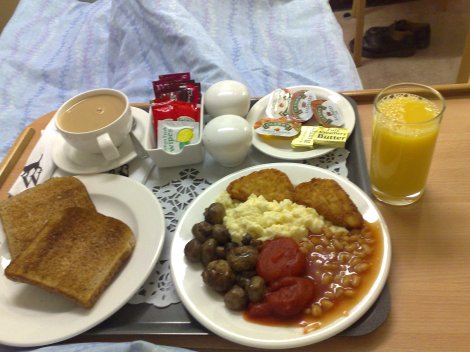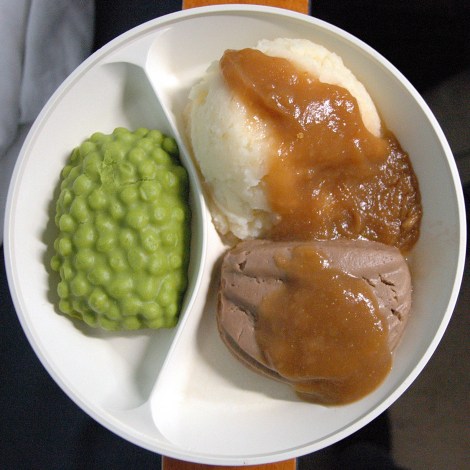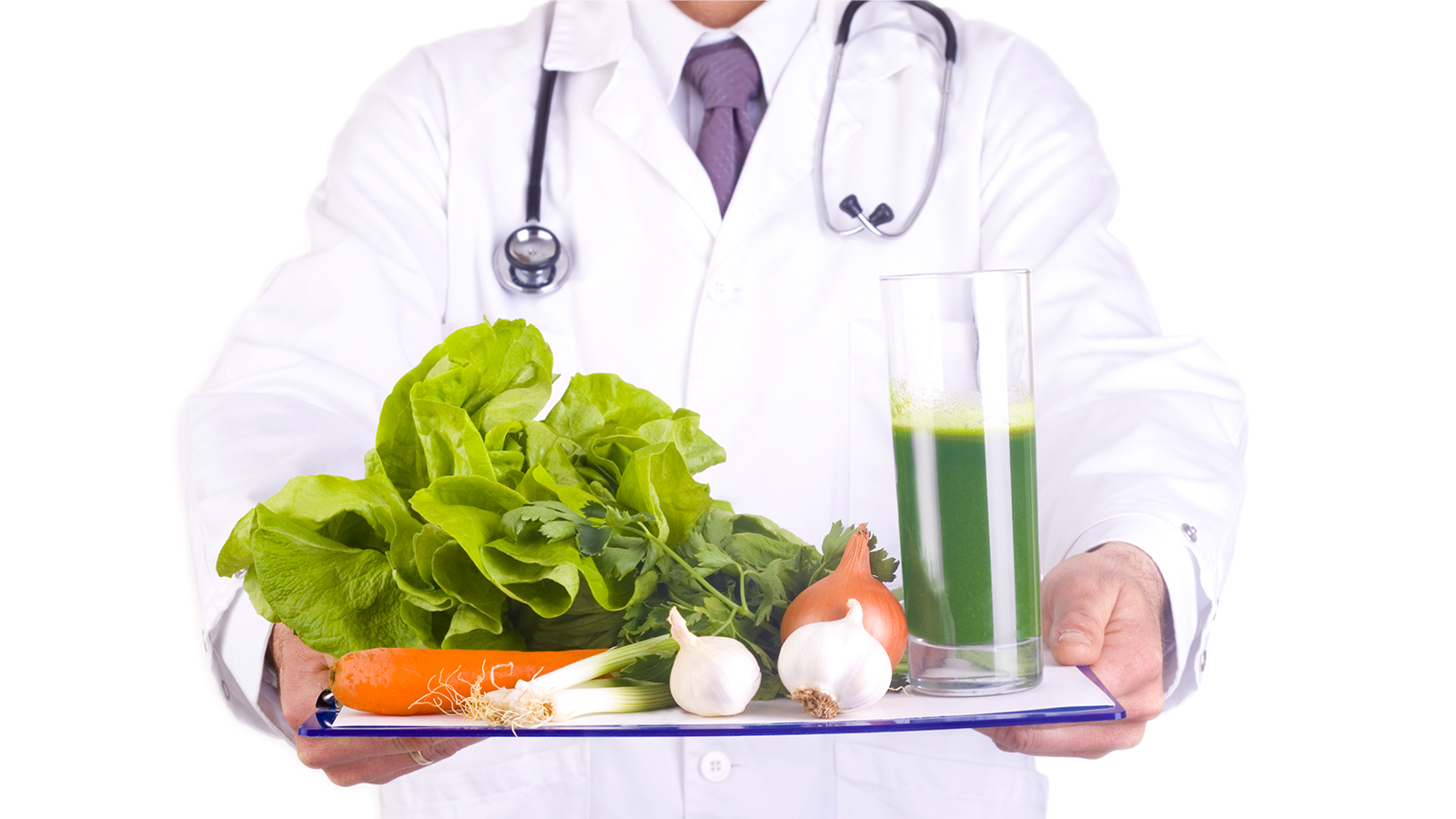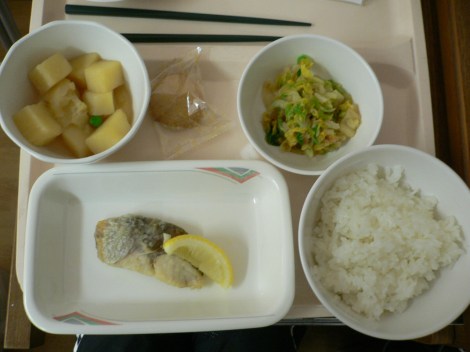If you’re reading this from a hospital bed, you’ve probably got a lot feel crummy about. And sometimes it seems like hospitals are actually trying to add insult to injury by what they serve up.
Like this:

Mark HillaryEw.

SiobhanOK, that doesn’t even look real. And yet … it is. Yuck.
But there’s good news spreading through hospital corridors across America: The promise of a meal that’s actually palatable and good for you — and for the environment. AP reports that a “growing network of companies and organizations is delivering food directly from local farms to major institutions like Thomas Jefferson University Hospital in downtown Philadelphia, eliminating scores of middlemen from farm to fork.”
From AP:
Major institutions like Jefferson have long relied on whatever giant food service companies provide, often processed foods that are delivered efficiently and are easy to heat and serve. But with a steady supply of locally grown food from the Common Market food hub, Jefferson now serves vegetables like bok choy and asparagus, creamy yogurts from Amish country and omelets with locally sourced cage-free eggs and spinach.
The model is simple: Common Market, a nonprofit, picks up food from 75 regional farmers and small food companies and quickly turns it around in its Philadelphia warehouse. The food — everything from vegetables to turkey to tofu — is then sent to 220 city customers along with detailed information about where it was grown or produced. There are about 300 other similar food hubs around the country.
St. Luke’s University Hospital Network is taking that a step further by growing veggies on site at its new facility in Bethlehem Township, Penn. This year, the five-acre plot is expected to grow 44,000 pounds of organic food like tomatoes, squash, and peppers. St. Luke’s plans to eventually double the size of the farm. Eating produce is very beneficial for patients, St. Luke’s Community Health Medical Director Bonnie Coyle told Lehigh Valley Live. Who woulda thunk!
Health benefits aside, institutions like hospitals are perfectly poised to give the food movement the kick it needs by making local food available on a bigger scale. Because as fun as it is to casually browse local offerings on a Saturday afternoon, farmers markets can’t change the food system all on their own. I can’t say I hope to get sent to a hospital soon … but if I do, I’ll take a bok choy omelet over those weird brown-grey globs.





